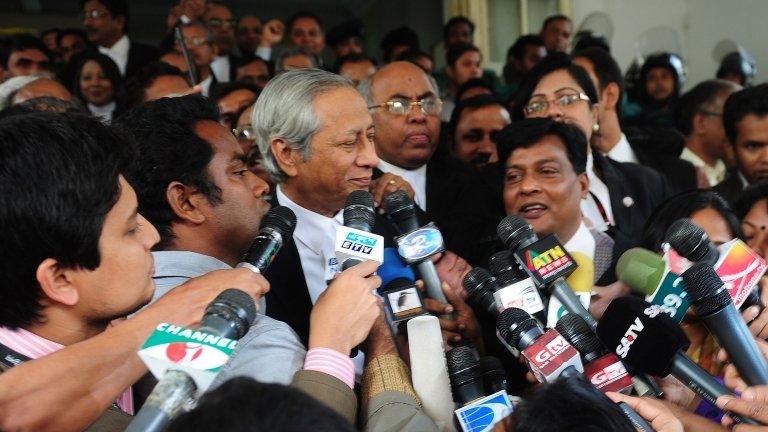Bangladesh: Abdul Kader Mullah gets life sentence for war crimes
- Published
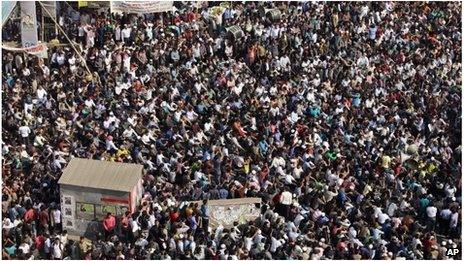
Supporters of Jamaat-e-Islami have staged protests in Dhaka
A war crimes tribunal in Bangladesh has found a leader of the main Islamist party guilty of crimes against humanity during the war for independence from Pakistan in 1971.
Abdul Kader Mullah of Jamaat-e-Islami, who denied all the charges, was sentenced to life in prison.
Official estimates say more than three million people were killed in the war.
But the trial has sparked protests from supporters who accuse the government of pursuing a political vendetta.
Jamaat has called a national strike for Tuesday, and clashes between police and protesters broke out in Dhaka and several other cities.
Police fired tear gas and rubber bullets, while demonstrators set vehicles alight. In the southern city of Chittagong, one man was reported to have died in the violence.
Thousands marched through the capital, Dhaka, on Monday, demanding the release of their leaders.
'Witch hunt'
Abdul Kader Mullah, 64, the assistant secretary general of the Jamaat-e-Islami, was found guilty of five out of six charges, including murder.
The BBC's Anbarasan Ethirajan who was in the packed, heavily guarded court room, says Mullah's face appeared grim as he listened attentively to the verdict for nearly an hour and a half.
As soon as the judges finished reading the judgement out, he shouted "Allahu Akbar" ("God is great") and then cursed the judges and the government.
Mullah had been a loyal servant of the Jamaat-e-Islami since his days at Dhaka University and was a member of the party's inner circle of decision-makers, says BBC Bengali editor Sabir Mustafa.
Mullah became prominent in the party's student wing in 1971. He was accused in court of being a member of the shadowy al-Badr force, which Jamaat is alleged to have created and which is accused of the kidnapping and murder of more than 200 Bengali intellectuals in the dying days of the war.
Mullah was accused in court of being behind a series of killings including some large-scale massacres in the Mirpur area of Dhaka, which earned him the nickname of "koshai" or butcher of Mirpur and made him one of the more feared Jamaat leaders.
He is the second defendant to be found guilty by the special tribunal.
Last month, a former party leader, Abul Kalam Azad, was found guilty in absentia of eight charges of crimes against humanity and sentenced to death.
Ten others are on trial, including eight top leaders of Jamaat-e-Islami and two members of the opposition Bangladesh Nationalist Party (BNP), one a former minister.
All deny the charges against them and opposition leaders accuse the government of carrying out a political vendetta.
Abdur Razzaq, the lead lawyer for the Jamaat leaders facing trial, has described the tribunal as "a witch hunt".
"We are but forced to accept the verdict. However, we will surely appeal to the Supreme Court against the judgement," he told BBC Bengali on Monday. "Although the prosecution says that guilt has been proved, I consider this to be a perverse judgement. The prosecution has failed to prove any charge."
Human rights groups have also said the tribunal falls short of international standards.
The special court was set up in 2010 by the current Bangladeshi government to deal with those accused of collaborating with Pakistani forces who attempted to stop East Pakistan (as Bangladesh was then) from becoming an independent country.
Bangladesh government figures estimate more than three million people were killed during the independence war, although some researchers put the figure at between 300,000 and 500,000.
- Published4 September 2016
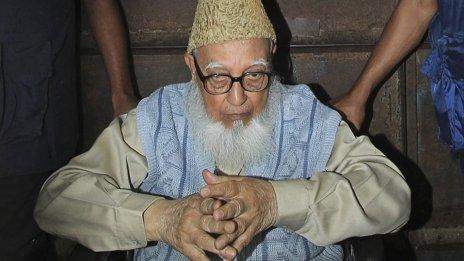
- Published21 January 2013
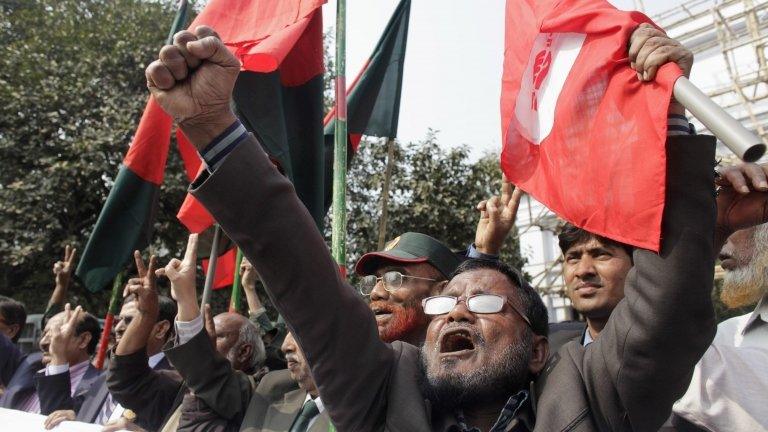
- Published31 January 2013
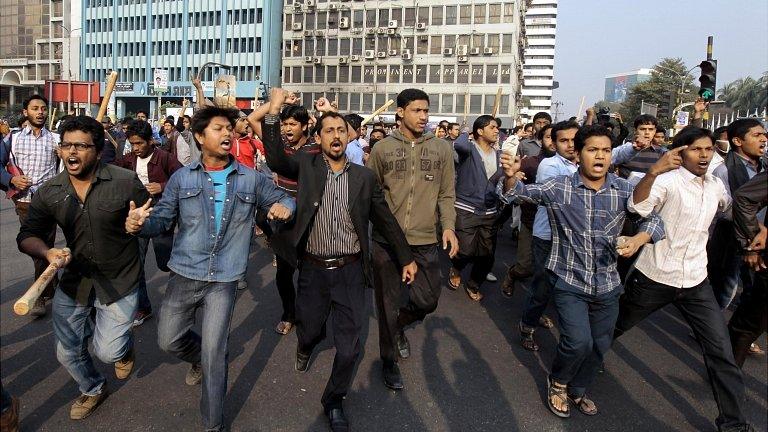
- Published21 January 2013
